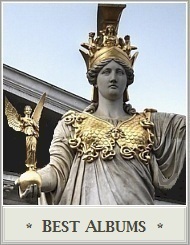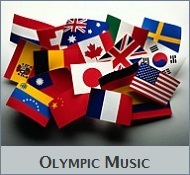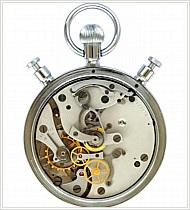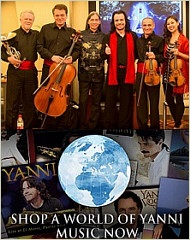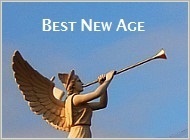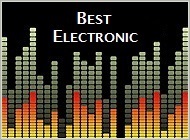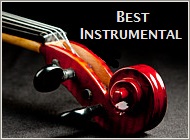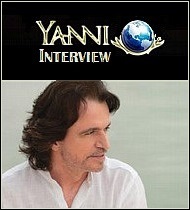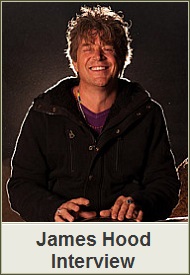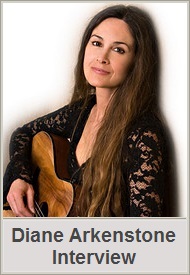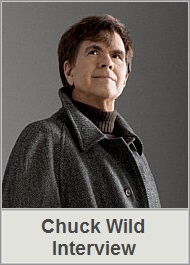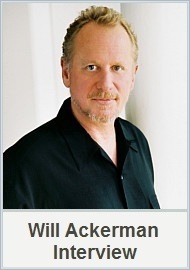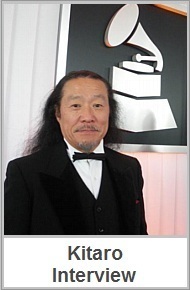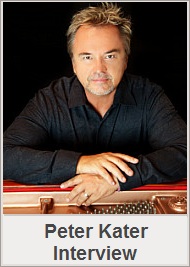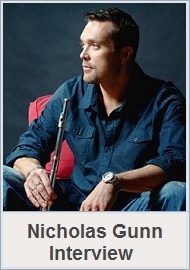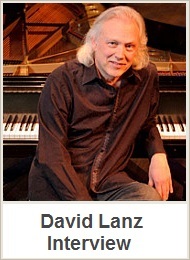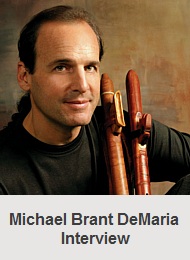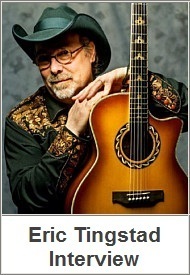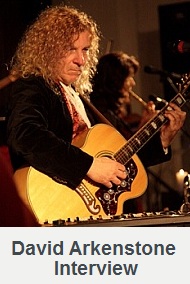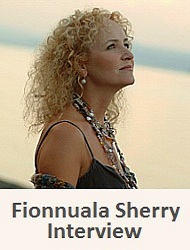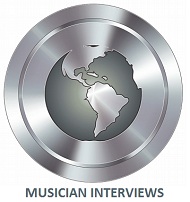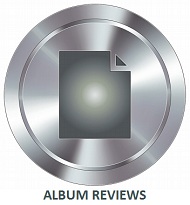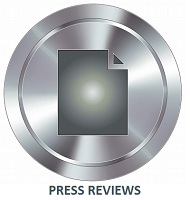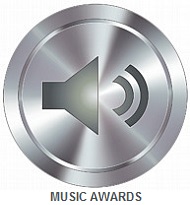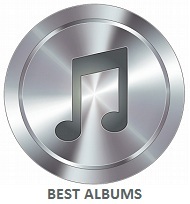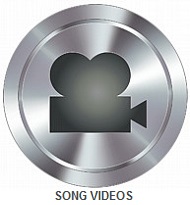
In an exclusive interview, review publicists and interview hosts John P. Olsen and B.T. Fasmer each take a turn in asking Clifford White a variety of questions on his role in New Age music, and what the future holds for this great artist from the UK.
NewAgeMusicWorld.Com & NewAgeMusic.nu are proud to present this exclusive interview with New Age music legend Clifford White. During this 2010 interview Clifford talks about everything from Ascension (1985) to the upcoming album Atlantis, and he tells everyone a few secrets too!
Interview with Clifford White;
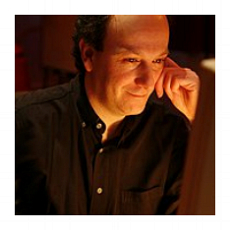 John P. Olsen: Take us back to 1985 when you were 17 years old Clifford. Ascension began your journey as a leading composer and producer of the primordial UK New Age genre, with Ascension selling tens of thousands of copies worldwide to become the strong foundation to your music career.
John P. Olsen: Take us back to 1985 when you were 17 years old Clifford. Ascension began your journey as a leading composer and producer of the primordial UK New Age genre, with Ascension selling tens of thousands of copies worldwide to become the strong foundation to your music career.
What is the reason you are so committed to the New Age genre, and have you ever considered producing music in more popular genres?
Clifford White: Although it was by no means traumatic, I did not have a particularly easy childhood, and by the age of 14 I had developed insecurities and fears which I found I could escape from by creating simple music on the piano, or by using various home keyboards and other musical instruments. Many years later, upon reading Mike Oldfield’s biography ‘Changeling’ I was very moved to hear that he had suffered from similar problems in his youth, and had in fact written Tubular Bells for much the same reason i.e. to escape from a world of fear into a space where the healing power of music could help him in releasing and resolving his feelings – in effect a form of musical catharsis.
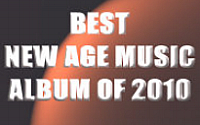 My first album Ascension was written in a comparable frame of mind, and it is quite telling that it went on to have such an impact upon people’s emotional well-being. I am quite positive now that music influences the mind, body and soul in the most profound ways, and that for this reason my commitment to it abides. With Ascension boosting my musical confidence, I went on to produce a further 7 albums over a period of 10 years (1985 to 1995) in a variety of styles and I will continue to be committed to developing and promoting this type of music in the future, within whichever genre it appears.
My first album Ascension was written in a comparable frame of mind, and it is quite telling that it went on to have such an impact upon people’s emotional well-being. I am quite positive now that music influences the mind, body and soul in the most profound ways, and that for this reason my commitment to it abides. With Ascension boosting my musical confidence, I went on to produce a further 7 albums over a period of 10 years (1985 to 1995) in a variety of styles and I will continue to be committed to developing and promoting this type of music in the future, within whichever genre it appears.
John Olsen: I read in your biography at NewWorldMusic.Com, where your solo albums began receiving much press in the UK and were described as “Britain’s foremost exponent of New Age Rock“ and you, (Clifford White) were even listed next to the iconic Rock band, The Who in Collin’s book The Best of Rock. What is the story behind this statement and the early events during the time period?
Clifford White: Well, the ‘Best of Rock’ review was actually a bit of a joke. I mean, who actually creates ‘New Age Rock’ – isn’t that a bit of a misnomer?
In actual fact, it was a well known pop journalist called Alan Clayson that coined the term when he was asked to compile the ‘Best of Rock’ book. I knew Alan at the time, although I was very flattered that he wanted to include me. Imagine my surprise when I found myself next to The Who. Nice.
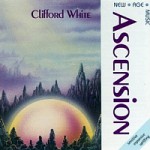 John Olsen: You were the presiding founder of the UK New Age Music Association (NAMA) with 40 top artists including James Asher, Kevin Kendle, Asha Quinn, and Tim Wheater. What was the mission of NAMA as a whole, and were there some ideas formulated that have evolved into what we find in today’s New Age genre?
John Olsen: You were the presiding founder of the UK New Age Music Association (NAMA) with 40 top artists including James Asher, Kevin Kendle, Asha Quinn, and Tim Wheater. What was the mission of NAMA as a whole, and were there some ideas formulated that have evolved into what we find in today’s New Age genre?
Clifford White: Yes there is, and in many ways, my original desires and intentions for NAMA have been spectacularly resurrected with the resounding success of the New Age Music Network: Newagemusicnetwork.ning.com – an online social network with over 500 members. Both then and now, I continue to believe that artists and companies can work together to nurture and support the new age music genre and that, in perhaps our more technologically refined era, social networks such as these provide excellent environments from within which many useful discussions develop and contacts are made.
It is however unfortunate that, just as in the early days of NAMA, there is still a certain degree of exploitation going on (not mentioning any names) but I suppose this is to be expected in any industry, perhaps especially within music. I just wish people would see the logic in working together in teams to a greater extent. I believe our culture suffers greatly from excessive individualism and self interest, and what seems to have become an instinctive cynicism towards collaboration and group support – almost paranoia in some instances. It is therefore refreshing to meet individuals such as yourselves who, quite obviously, have nothing but positive intentions and goodwill as an agenda.
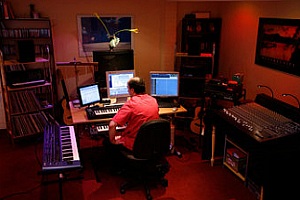 B. T. Fasmer: Please tell us a little about Sanctuary Studio at St Albans. From the pictures on your page, it looks impressive. Do you use mostly DAWs, or hardware synths – or both?
B. T. Fasmer: Please tell us a little about Sanctuary Studio at St Albans. From the pictures on your page, it looks impressive. Do you use mostly DAWs, or hardware synths – or both?
Clifford White: Sanctuary is the current name of my recording studio in St Albans. I set the studio up in 2008 and it is my most ambitious studio to date, certainly in terms of space and creative freedom. Detached from my home and occupying approximately 17ft W by 36ft L, my studio outbuilding has a dedicated sound booth for musicians and singers to perform, a control room and kitchen plus an office area. It was the realization of a 20 year dream to setup this studio and I am truly grateful and thankful to have achieved it. The only trick is finding enough time to spend in it!
On the music technology side I, like so many other producers in our current electronic era, use computers almost exclusively in the process of creating music. I have, over the past 10 years or so, built up a huge sample library of instruments, sounds and effects, which, combined with the software DAW I use – which is called Muzys – accounts for about 99% of my current music output. I do have a traditional ‘vintage’ analogue synthesizer – the Novation Supernova II Pro X, which is truly a beast of a machine – probably the greatest synthesizer ever made in terms of power and flexibility. Unfortunately however, it does not often see the light of day, as it is so much quicker and simpler to layer all of my music directly on the computer.
However, when a special timbre or effect is called for, the Novation is there. I also have a small selection of ‘virtual’ synthesizers (VST’s) which I enjoy using, including Arturia’s FM7, the excellent Yamaha DX7 emulation, which I used extensively on Ascension II. The original Ascension album featured the DX7 quite heavily and so it was truly great to revisit those old sounds in the new album. The freeware Synth1 plugin is also great, with a lovely silky sound, and I have a selection of other freeware VST’s that I use for other purposes, although like I said, raw instrument samples and effects are my usual elements of choice as they offer more control of the overall sound and dynamic than the virtual instruments.
 I have little else that I directly use for my own album productions, although I do have a Behringer MX9000 48 channel mixer and a Mackie HDR24/96 hard disk recorder, which tends to be used mostly by visiting musicians and during improvised and ‘live’ studio sessions. I can directly transfer recordings made on the hard disk recorder to my music PC, importing them into my Muzys DAW as samples which I can then layer into my music, but I have hardly done much of that yet to be honest. I have so much of my own material built up in Muzys now that I suspect I will have enough to keep me going for another 5 or 6 albums at least!
I have little else that I directly use for my own album productions, although I do have a Behringer MX9000 48 channel mixer and a Mackie HDR24/96 hard disk recorder, which tends to be used mostly by visiting musicians and during improvised and ‘live’ studio sessions. I can directly transfer recordings made on the hard disk recorder to my music PC, importing them into my Muzys DAW as samples which I can then layer into my music, but I have hardly done much of that yet to be honest. I have so much of my own material built up in Muzys now that I suspect I will have enough to keep me going for another 5 or 6 albums at least!
John Olsen: During the past 25 years of your New Age music career you have used genre influences in Ambient, Epic, Latin, Jazz, Tropical, and even Classical. What determines the varying influence in each album you produce Clifford?
Clifford White: I love all those genres of music and I am always looking for an excuse to create albums that contain elements of those styles mixed together into the general album concept. Also, I like to try and avoid repeating myself and so the aim of making each new album different from the one that has proceeded it really appeals to me. The way I see it, the whole concept of an album seems to be an entity in it’s own right, with it’s own style, mood and flavor, and once it is finished, it should appear to be a completed work, like a book or a film, and one really doesn’t want to mess with it, add to it, or detract from it with further musings which might simply repeat ideas present in the original work.
I tend to approach the production of an album with this in mind, and I try to pour as many relevant ideas into the same pot as possible, never to be used again. As the album gets further underway, the various track ideas tend to link together, much like chapters in a story, and after a while it becomes self-evident what is working and what is not, in context of the whole. Of course, it is usually nowhere near as easy as it sounds and believe me, I have certainly labored long and hard on tracks which are (unfortunately) later thrown out for not meeting the general concept, style or criteria for the album as a whole. In the end, I try to make the final result as complete and as cohesive a work as I possibly can.
John Olsen: Do you feel the success of your projects are primarily the result of simple hard work or more from your creative imagination? Or what is the primary reason you have been so successful the past 25 years?
Clifford White: You know the old saying that goes ‘one percent inspiration and 99 percent perspiration’? Well, for me it’s more like 15% inspiration, 85% perspiration, but that is still a lot of work! I find that the initial ideas for a track or a collection of tracks tend to occur quite quickly – in the heat of the moment – and this usually results in a collection of strong core ideas. After repeated listening, these ideas seem to become further refined in my own mind – almost as if the process of hearing a piece of music days or weeks later from it’s creation somehow changes it, making it more ‘real’ and familiar. It’s very strange. In any event these ideas, usually in the form of short instrumental loops or arrangements, start to shine through in their own ways, suggesting further developments that could be possible. I tend to wait this process out until I am really ‘chomping at the bit’ to get into the studio to work on a piece. When the urge gets too great, that’s when I unleash myself into the studio and get working. Thus begins the 85% perspiration! A huge amount of effort goes into the process as I am very fussy and critical about my music tracks. They have to stand the test of time, yet sound fresh and new. That’s not an easy thing to sustain when you have already heard them 100 times!
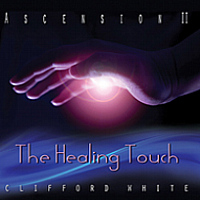 John Olsen: You have your 2010 Ascension II – The Healing Touch, and plan to release another project later this year. Is this next album going to resemble an Ambient influence like Ascension II or more resemblance to your Epic Gods of Olympus?
John Olsen: You have your 2010 Ascension II – The Healing Touch, and plan to release another project later this year. Is this next album going to resemble an Ambient influence like Ascension II or more resemblance to your Epic Gods of Olympus?
Clifford White: I’ll tell you a little secret: I have a 5 year plan to release two albums a year until 2015! Believe it or not, I already have more than enough material to achieve this – it really depends on how much time I will actually get to spend in the studio. With the first in this series – Ascension II – already released, the next album due out later this year will either be Atlantis – which will be another epic production similar to the The Gods Of Olympus – or an album currently entitled The Beach, which will sound a little similar to my past albums The Lifespring or Twilight Paradise with that slightly jazzy, ‘sun-drenched’ tropical vibe. For 2011 I want to tackle two ‘Oxygene/Equinoxe’ type albums that I already have a great deal of material for. I have always loved the textures and moods Jean-Michel Jarre discovered whilst creating his early albums and have for a long-time wished he would revisit that sound. Unfortunately he did not, not even (to my ears) on his Oxygene sequel. I certainly would like to have a go! Following that I have a 2012 themed album planned (no big surprise there perhaps), and a sequel to The Beach, again for which I already have many track ideas. A couple more albums will follow and then as 2015 opens I will round the whole lot off with Ascension III, which will be the 30th anniversary of the original Ascension and make 20 albums in total. It will be very interesting to read this interview in a few years time to see if anything worked out according to my plan. After that – who knows…?
B. T. Fasmer: You have already told us a little about the Atlantis project. Is there anything more you would like to add?
Clifford White: Atlantis will hopefully be completed by around August/September 2010 and released shortly thereafter. The title is a little misleading as, although the album has watery overtones, it is rather more upbeat and rhythmic than you might expect. Its closest comparison would probably be my 2009 album The Gods Of Olympus, at least in terms of its cinematic style and mood. I am quite pleased with what I have completed so far and like GODS, the album will have plenty of tracks to enjoy – at present around 12 – in a variety of styles and moods.
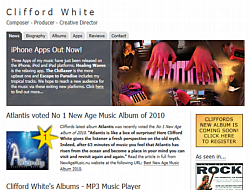 I am thinking of it as a kind of sequel to GODS, and there are certain similarities, perhaps not unsurprising as – from a mythological point of view – The Atlanteans and the Olympians are not-too-distantly related to each other.
I am thinking of it as a kind of sequel to GODS, and there are certain similarities, perhaps not unsurprising as – from a mythological point of view – The Atlanteans and the Olympians are not-too-distantly related to each other.
B. T. Fasmer: You are also an expert in web design, multimedia and video. As everyone knows, the internet has been a massive challenge for the music business – but don’t you agree that it has been mostly positive for a niche genre like new age music? Or?
Clifford White: Overall I would say yes, considering that the Internet is such a fantastic medium for communication between musicians, producers and composers and a superb tool for music promotion and publicity that it has served ‘New Age Music’ extremely well in this regard. The flip-side is that there is now so much music out there that it is impossible to find the good stuff!
I myself spend hours and hours listening to new artists, or past artists I had never heard of before, and much of it is not wildly original, not very satisfying. Don’t get me wrong, I do occasionally find some great music, such as Australis or David Wahler, but these are often exceptions from the norm. Blogs such as your own at NewAgeMusic.nu are fantastic ways to discover new music, although I must admit really that I find a great deal of New Age/Electronic/Ambient/Chillout music a little dull, although I always live in hope of discovering better works in progress. I certainly feel that the Internet provides for great potential in the promotion of this musical genre, and in fact I had myself setup a website to attempt this last year called the New Age Music News which is going from strength to strength. So the future looks positive !
Visit CliffordWhite.co.uk and my pages dedicated to Clifford White. Photograph copyrights Jon Warren & Clifford White.

